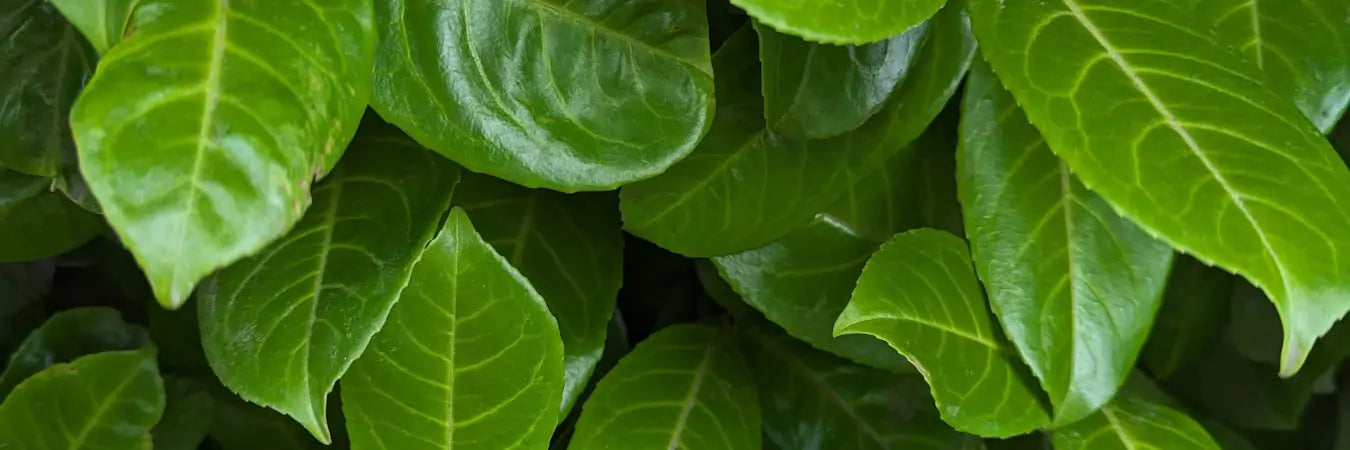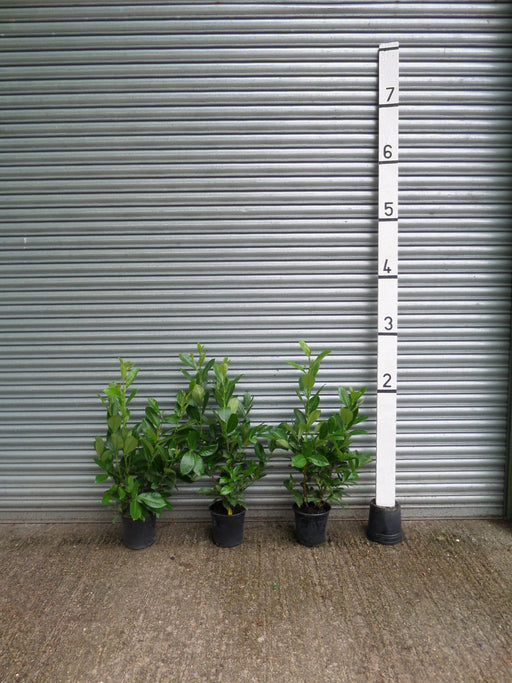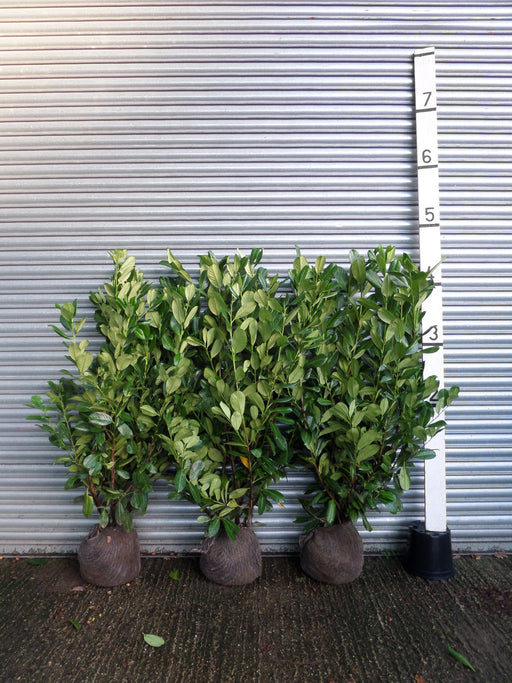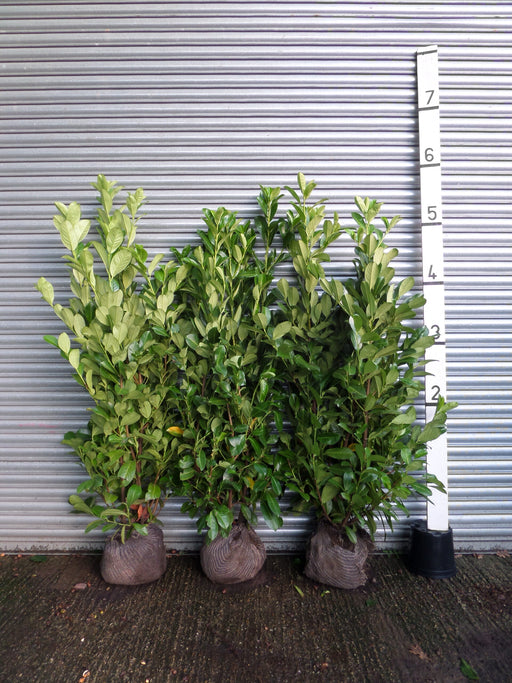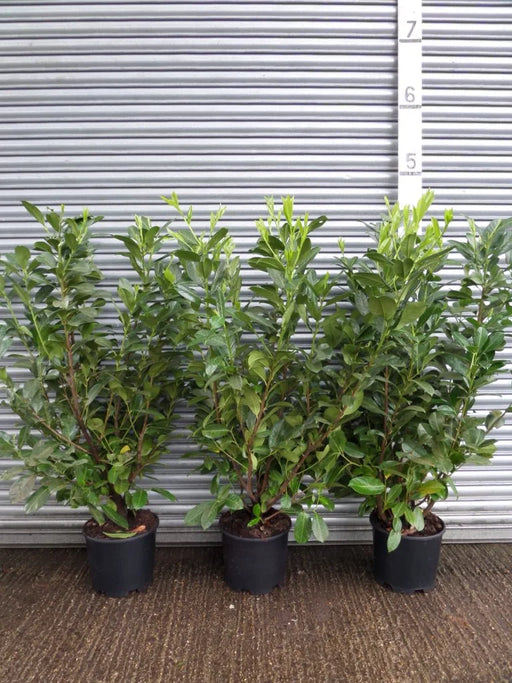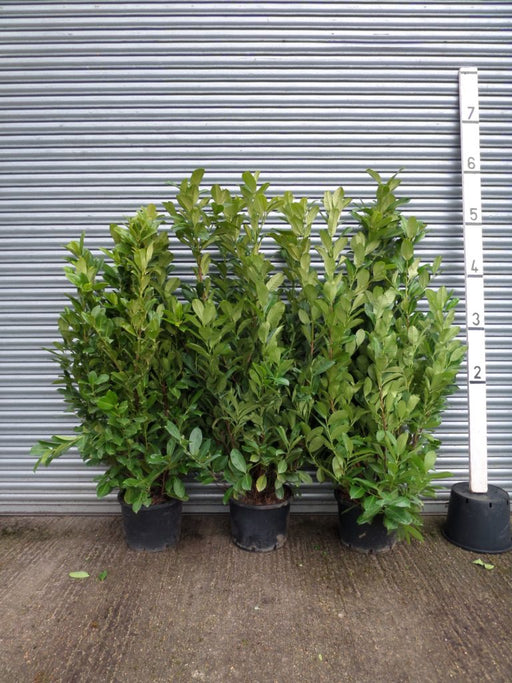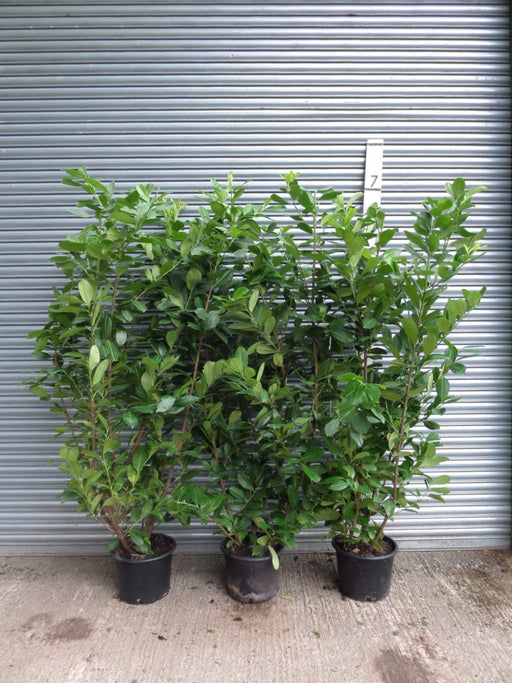Laurel (Prunus laurocerasus ‘Rotundifolia’) is also known as Cherry Laurel or Common Laurel.
Why should I plant a laurel hedge?
Laurel is a highly popular evergreen hedging plant as it is tolerant of most situations and soil types. It’s large vibrant green leaves and quick annual growth make it an excellent choice for creating a relatively instant hedge. Being an evergreen, a laurel hedge will provide all year round privacy as well as winter protection for many small mammals and garden birds. Blackbirds, thrushes and other native birds are particularly fond of them as nesting sites.
How tall will a laurel hedge grow?
Laurel hedges are generally considered to be best suited for larger hedges and can be quite happily grown to heights of 8-10 feet although usually, 6-7 foot is more than adequate.
How quickly will a laurel hedge grow?
You can reasonably expect your laurel hedge to have a growth rate of 12-18 inches a year after the first year of establishment. once the hedge has reached its desired height it should be trimmed at that height accordingly to maintain its size and density.
When should I clip or trim a laurel hedge?
A laurel hedge will need to be clipped annually in the Spring or Autumn as you would with any other hedge. Additionally, if your laurel hedge gets too large, it can be cut back quite heavily and will regenerate the following year.
How far apart should I plant a laurel hedge?
Laurels should be planted 2ft (60cm) apart regardless of how tall or short they are when you buy them and careful preparation of the planting site is important. See section below on how to look after your laurel hedge after planting.
How do I look after my laurel hedge after planting?
Although laurel plants will put up with most soil types, we recommended that the planting soil is mixed with compost to give the plants the best environment to grow in for their first year. After planting, your laurel hedge should be watered regularly during its first year to give it the best chance of survival and this is especially important if your hedge is being planted in the drier summer months.
How do I water my laurel hedge?
Watering a laurel hedge is especially important if you are planting during the summer or a dry period. For watering, we recommend using leaky hose (sometimes described as porous pipe) which can be connected to your existing hose pipe and will slowly leak water onto the roots of your hedge in a controlled manner to ensure that it soaks in and your hedge becomes properly watered. Leaky hose is cheap, easy to install and very effective. See our Accessories page for more details on leaky hose.
Is laurel tolerant of different soil types?
Laurels will tolerate most soil types (including dry sites) but do not like being in waterlogged soil.
Does laurel like full sun or shade?
Laurels are extremely tolerant and will grow in full sunshine or in shady spots.
Should I plant container grown or root balled laurel plants?
If planting is taking place in the colder months of the year, you can plant either container grown or root balled plants. Container grown plants will come with the roots contained within a potful of growing compost which is packed full of nutrients and will give your plants the best opportunity of putting down proper roots straight away after planting. Container grown plants can be planted all year round so long as the hedge is properly watered after planting. Conversely, root balled plants should only be planted in the colder months of the year as otherwise their roots will dry out too quickly before planting. Root balled plants will typically be cheaper than container grown plants.
We usually stock a large selection of different sizes of laurels throughout the year.
For more information on our availability of laurel plants or if you have any questions or queries about existing laurel hedges or need advice about planting a new laurel hedge, please call us on 01252 714552 or email sales@hedgesonline.com
An interesting fact about Laurels…
In ancient Greece, the evergreen Laurel tree was dedicated to the goddess Apollo. The Delphic Oracle (also known as the Pythia) is sometimes depicted as sitting next to a laurel tree with a sprig in her hand and laurel was the only wood used in temple fires (burned as an offering), and the priestess may have chewed it for inspiration (not something we would recommend). Credit to Libby Ruffle from her article in History Today (May 2017) as read on https://www.historytoday.com/libby-ruffle/oracle-delphi-vessels-gods

